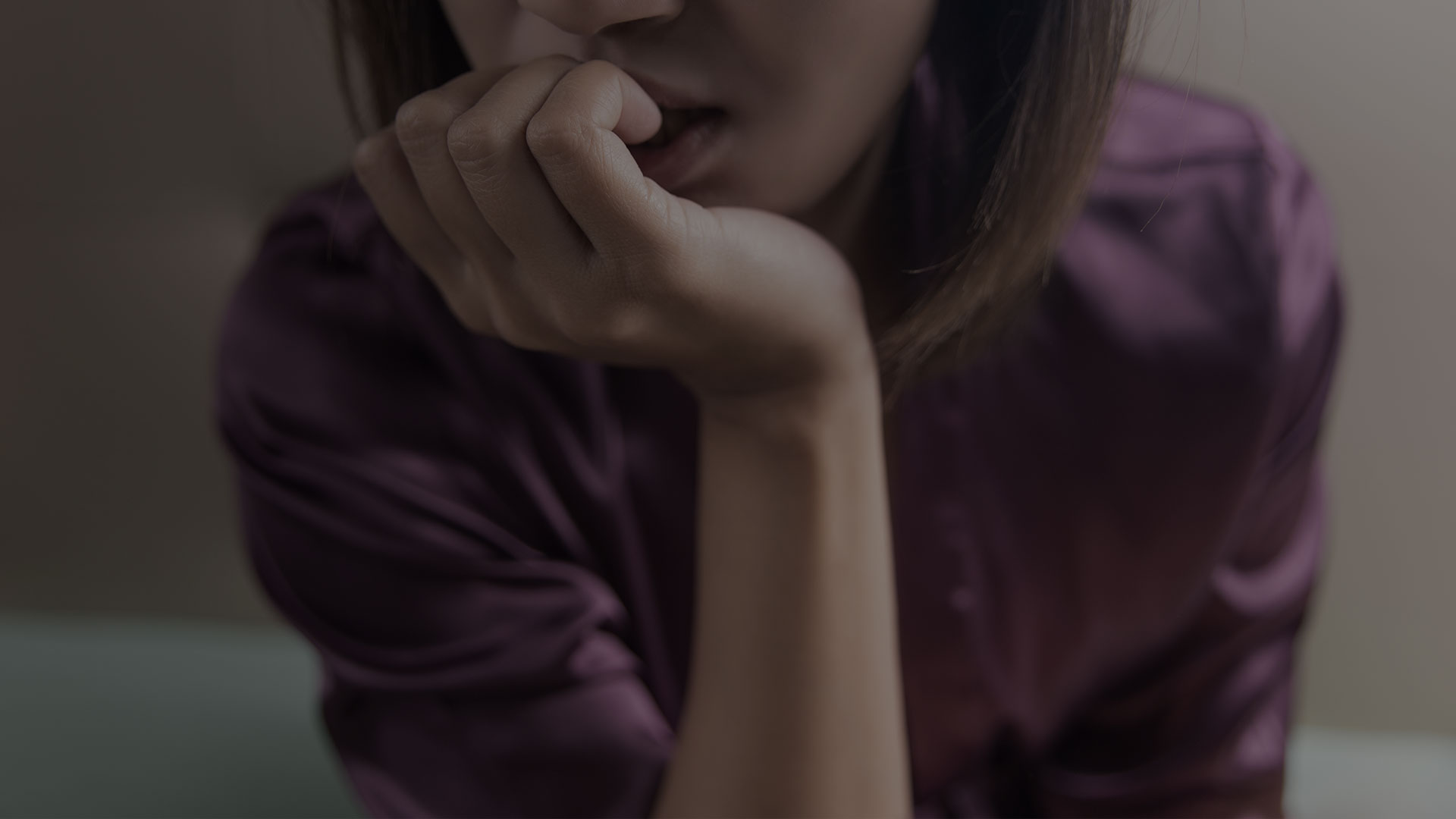
03 Nov Signs You Need to Seek Treatment for Addiction
Table of Content
Drug or alcohol addiction can slowly but surely claw its way into our lives or hit us suddenly like a hammer blow. The grim reality is that some people can become hooked on a substance after just one use while others may be recreational users for years before becoming addicted. Where you end up on this sliding scale depends on a host of factors (be it the substance abused, your genetics, environmental pressures, etcetera) and many of us have convinced ourselves that we are the outliers; that we are in control. It is, sadly, this confidence that so often blinds us to the symptoms of our own developing addiction and keeps us from seeking treatment during the early, critical stages. Come the end, after our addictions have robbed us of our friends, family and financial security, we will have wished we had paid more attention to the early warnings signs and less to that all too common self-conscious inner insistence: “I could never be an addict”.
Physical Signs of Addiction
Physical Dependence – The consistent presence of an addictive substance within the body will force physiological changes to be made in order to account for this foreign occupation. An alteration in the production and release of neurotransmitters, as well as changes to the rest of the brain’s chemistry will occur, leaving the body enslaved to the addictive substance in order to function optimally. If you are forced to stop using an addictive substance for any length of time you may feel physically sick or display psychological ineptitudes, these are sure signs that you have developed a physical dependence on a substance and are on the road to addiction.
Tolerance – If you require more and more of an addictive substance in order to feel its desired effects, then you have built up a tolerance and are on a sure path to addiction. Consumption of increased amounts of any substance will help to foster a physical dependence upon it and thus lead to addiction. It is sometimes difficult to gauge a growing tolerance as the process can take long periods of time and will vary between different people.
Withdrawal – If you have suddenly stopped using a substance, be it alcohol or a legal or illegal drug, you may feel certain negative physical and psychological symptoms. This is due to the aforementioned physical dependence your body has developed. Withdrawal symptoms may include flu-like physical ailments and psychological afflictions such as anxiety, depression, psychosis, and insomnia. Your body is, essentially, sick from not having the substance upon which it now relies and will react accordingly.
Behavioral Signs of Addiction
Cravings – Addiction is a psychological and physical need to ingest an addictive substance in order to placate the overwhelming cravings an addict will feel for that substance. These cravings may occur for hours, days or even moments after your last use of the addictive substance and will continue unless acted upon until the withdrawal and detoxification processes have been completed. If you feel cravings for a particular substance this may be an early warning sign that you are addicted to it.
Substance seeking – Whether addicted to tobacco, alcohol or drugs, acquiring the addictive substance you are craving will become your main focus and goal. Everything else will fall to the wayside and you may find yourself leaving family and friends in order to hit the liquor store or meet your dealer. This will put a strain, not only on your social and family life, but also on your finances as you pour more and more money into your addiction.
Financial difficulty – An addict will show signs of financial stress as they seek to feed their addiction from their ever-dwindling financial supply. Under the influence, performance at work will slip and can often result in termination. Sudden joblessness and lack of income can cause many addicts to manipulate and coheres their loved ones and friends into giving them loans. If you have ever needed to borrow money in order to buy drugs or alcohol then there is a good chance that you have fallen into addiction and should seek treatment before you succumb to destitution. There is a reason that so many drug and alcohol addicts are suffering in homelessness and are forced into panhandling and prostitution: addiction becomes the main motivator in life and destroys their ability to succeed in legitimate workplaces and make enough money to stay off the streets.
High-risk behavior and friendships – Alcohol and drug abuse can make us act in a way we normally wouldn’t. We can become emotionally volatile and dangerous to ourselves and others. When this volatility is matched with the financial burdens and substance-seeking behaviors of an addict, criminal activity is often the result. Bar fights, street brawls and physical abuse are common coin for those steeped in alcohol abuse culture, while the dark and violent world of the illegal drug trade is infamously well documented. The people we surround ourselves with will change when in the throes of addiction. Drug dealers and fellow addicts will replace old friends and family as our closest associates. These individuals usually do not have our best interests in mind. Many will prey upon the addicted, pulling every cent they can from them and then leaving them broke and alone. Others will seek to enable an addict in order to lend validity to their own addiction or for the simple fact that misery loves company.
Common Addictions
Alcohol Addiction – Alcoholism is a disease that affects millions around the globe and has had an overwhelmingly negative effect on human society. One of the earliest inebriants, alcohol has been a part of our civilization for millennia. The fact that this highly addictive substance is legal in most countries does a lot to disguise its harmful properties. If you or a loved one shows the following signs of alcoholism, treatment should be sought as soon as possible.
- Regularly “blacking out”
- Lying about and hiding drinking habits
- An inability to stop drinking once you have started
- A high tolerance
- Drinking in order to feel comfortable in social situations
- Drinking to feel better about yourself
- Drinking to cope with day-to-day life and anxiety
Opioid and Heroin Addiction – The opioid crisis sweeping the United States has gained a lot of headlines but not a lot of action. The abuse of prescription painkillers is now widespread and affects millions of people. Slipping into opioid addiction is incredibly easy as the drugs themselves are widely available via prescription or illegal sale and are often given freely by those with prescriptions to those without who are suffering from mundane ailments, such as headaches. If you do become addicted to opioid medication, this addiction can swiftly become an addiction to heroin as the street drug is cheaper than the prescribed alternatives and is derived from the same chemicals. Overdose is now the most common means of accidental death in the U.S. (overtaking car accidents), and almost two thirds of those deaths are due to opioids and heroin. If you have regular cravings for opioids or heroin then you are probably addicted to them. These drugs are so highly addictive that you can fall prey to them after just a few uses. Withdrawal from these drugs can be incredibly painful and severe depending on the severity of the addiction, so professional treatment is essential to staying safe and healthy throughout recovery.
Cocaine, Ecstasy and Methamphetamine Addiction – Stimulants affect our brain chemistry in a variety of harmful ways and will often result in a physical dependence. Withdrawal from cocaine, ecstasy or meth can come upon us swiftly and with extreme prejudice, making those addicted to these drugs quick to dose themselves again to escape the symptoms. If you find yourself using any of these drugs in order to escape the “lows” of a “come down” from previous use, then you probably are suffering from addiction.
Treatment for Addiction
If you or a loved one are seeking treatment for addiction then there is no better way to proceed than by enlisting the help of medical and mental health professionals. The process of detoxification can be incredibly difficult and relapse rates are usually high if the withdrawal symptoms are severe. Finding an appropriate treatment center staffed with qualified personnel can go a long way to ensuring safe and long-term recovery is achieved. Addiction treatment centers usually fall into two categories: outpatient and residential.
Outpatient Treatment
Outpatient treatment provides care throughout the detoxification period and a post-detox program for recovery from home. This allows the drug or alcohol addicted person the chance to receive medical treatment and supervision throughout the worst of their withdrawals while also allowing them the freedom to maintain their responsibilities once the worst is over. Medical management is also often administered through outpatient facilities such as methadone clinics. Post-detox the patient will usually be given a recovery program to follow that will include one-on-one and group therapy sessions as well as relapse prevention education and introduction to Alcoholic or Narcotics Anonymous groups.
The inherent problem with outpatient facilities is that once the detox period is over you are often free to return home. This freedom can put you immediately back into contact with the high-risk individuals and numerous triggers you left behind. Relapse is thus a huge risk when returning from an outpatient treatment center and steps should be taken to ensure you are able to avoid these triggers and people. Enlisting the help of loved ones and friends can make the return to normal life easier. Finding a safe and substance free place to stay, surrounding yourself with people who care about your sobriety and finding fulfilling and time-consuming hobbies will go a long way towards escaping the wiles of relapse.
Residential Treatment
By checking into a residential treatment center you will receive all the same detox supervision and medical assistance offered by an outpatient center with the added bonus of long-term care and counseling in a drug/alcohol free environment. This longer period of treatment can help to ensure avoidance of relapse and the numerous triggers of the outside world. Residential treatment can be rigorous (outdoor and wilderness camps are fairly common) and will help instill a sense of discipline and pride in a patient’s path towards a sober life. Therapeutic activities and, sometimes, exercise, will be mandatory and day-to-day living will be full of counseling sessions and group events. By surrounding the addicted with trained staff, former and current addicts and onsite medical personnel, the patient will receive support and care on a level unattainable by outpatient centers.
For those who have sufficient funds, luxury residential treatments are available. These treatment centers pride themselves on making recovery as pleasant as possible and will offer activities and amenities not usually accessible in day-to-day life. Whether the residential treatment center you attend is one of these luxury facilities or not, seeking this type of treatment will put your life and work on pause while you recover from your addiction. You may have to take a hiatus from work (termination due to absence is possible) or school in order to fulfill your program’s requirements and may be alienated from friends and family for long periods of time.
If you see the signs of addiction in a loved one it is important to be honest. Let the person know that you are concerned with their drug or alcohol abuse and offer them assistance in seeking treatment. This honesty should also be extended to yourself. Whether you’re drinking excessively or using illegal or prescription drugs day-to-day for any number of reasons, being honest with yourself about your substance abuse can mean the difference between recovery and a life of subjugation to your addiction. If you are seeing signs of addiction in your own life, do a favor to yourself and your loved ones, and seek treatment as soon as you can.
Sources:
Patterson. Eric. “5 Signs You Need Rehab Now.” Drugabuse.com. 15 Mar. 2019. https://drugabuse.com/treatment/signs-need-rehab/
“How to Know if You Need Help.” Addiction Center. 15 Mar. 2019. https://www.addictioncenter.com/rehab-questions/is-my-addiction-bad-enough/
“Signs of Drug Addiction.” WebMD. 15 Mar. 2019. https://www.webmd.com/mental-health/addiction/signs-of-drug-addiction#1




 678-771-6411
678-771-6411



No Comments